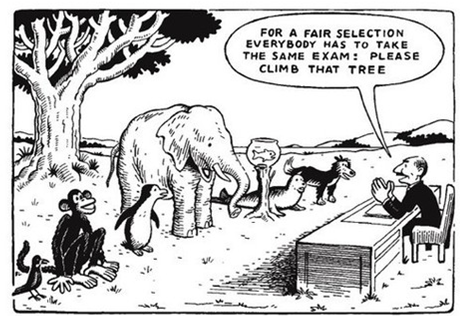How well do standardized tests measure student abilities?

As students, we are expected to take tests everyday, each one a little harder than the other, but all equally stressful. Students have a great deal of stress on them every single day, we are forced to go to school for seven hours of the day, do homework once we get home, take action in school activities /sports, have a job, and have a social life while all trying to maintain a healthy “stress-free lifestyle.” Throughout our educational career as students, teachers, principals, and lawmakers are basing who we are off numbers on tests.
Everyone has different strengths and different learning abilities, yet our future is based off these numbers. Junior Sarah Headapohl states, “Personally I think it’s not an accurate representation of a students abilities because of the varieties of factors as to why they may not perform well on a test.” A test doesn’t tell what happened to that student before they took the test. The grader doesn’t know the home life of the child, the school life or what they go through everyday. As Sophomore Stormm Byers points out, “I think they are just there for the teachers; they don’t really help the student as much.”
It has been documented that standardized testing does not help increase student achievement. According to a Washington Post investigation on standardized testing, “After No Child Left Behind (NCLB) passed in 2002, the US slipped from 18th in the world in math on the Programme for International Student Assessment (PISA) to 31st place in 2009, with a similar drop in science and no change in reading.” Standardized testing creates anxiety in children among other things, therefore students should be looked at as more than just a number on a piece of paper.




Natalie Grinder • Mar 14, 2018 at 2:29 pm
i agree becuase sometimes you do a homework assignment and can get everything right, but you do a test on it, and you forget some of it, and you get a bad grade. my friend used to go to a school where you didnt have tests. just graded you on homework and how you did in class, and how you understood the lesson. so i think tests are just extra stress that gets added to a person .
Jon • Mar 14, 2018 at 2:29 pm
I definitely agree with the article. I know myself and many others who are smart students but get answers wrong on tests because of something like not getting a good night of sleep or just a simple mistake, which I don’t feel is an accurate measure of skill/intelligence.
Emma Collins • Mar 14, 2018 at 2:26 pm
I’m glad that the unfairness of standardized tests is being backed, and spread to more people. I personally would like to see a change in the way we are graded test wise.
Bradley Connelly • Mar 14, 2018 at 11:58 am
I can relate to this article, as a swimmer I know that it is hard to both be active in your after school activity and also get your studying/homework dong. Based on the students schedule and the amount of time put in to studying. I don’t find it odd that a person whom has a busy schedule would score worse on a test than say someone who had time to study for it.
Cameron Myers • Mar 13, 2018 at 12:16 pm
Great article! Love it! I would expand more on the freshmans point of view, and maybe a seniors view to have different opinions from younger to oldest! other than that, great article!
Lexi Doll • Mar 13, 2018 at 12:00 pm
I AGREE SO MUCH!! Standardized tests are such a joke, thank you for sharing your opinion that a lot of students probably agree with.